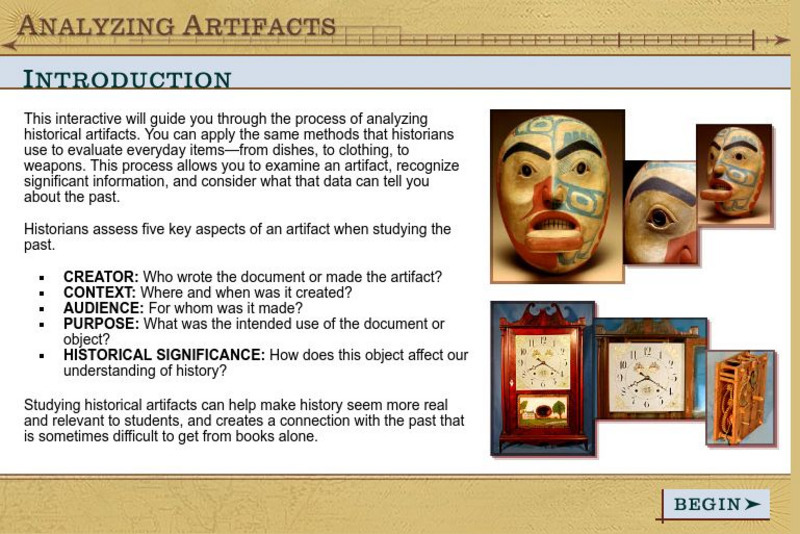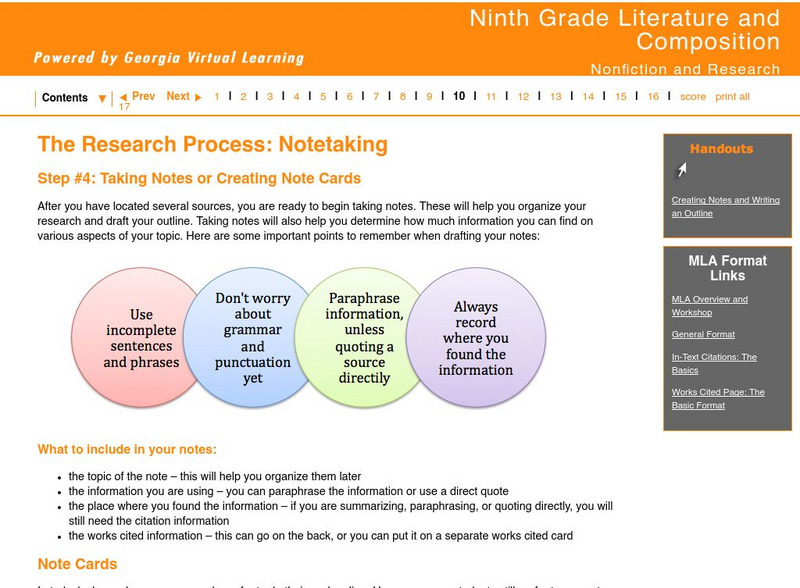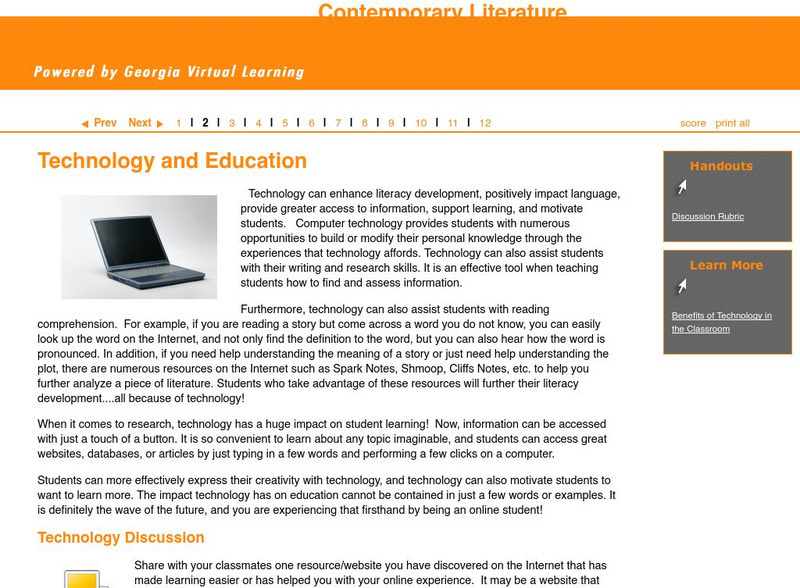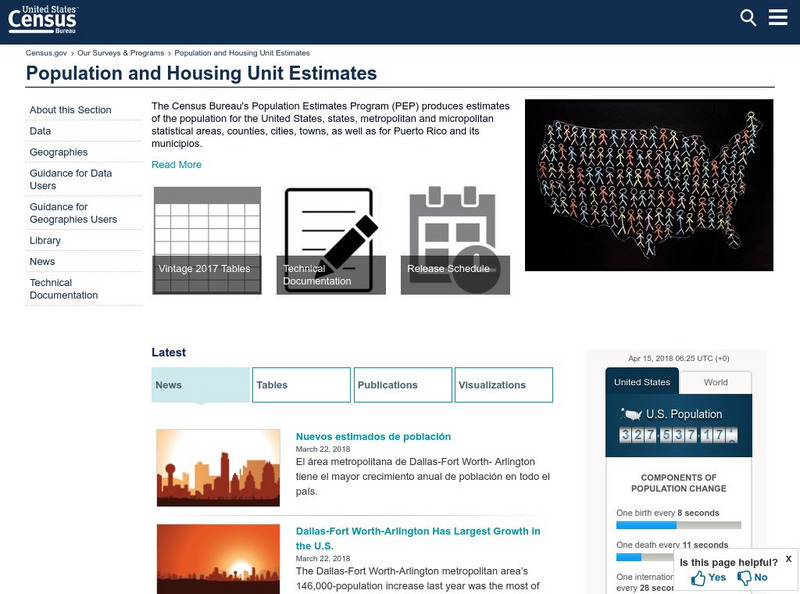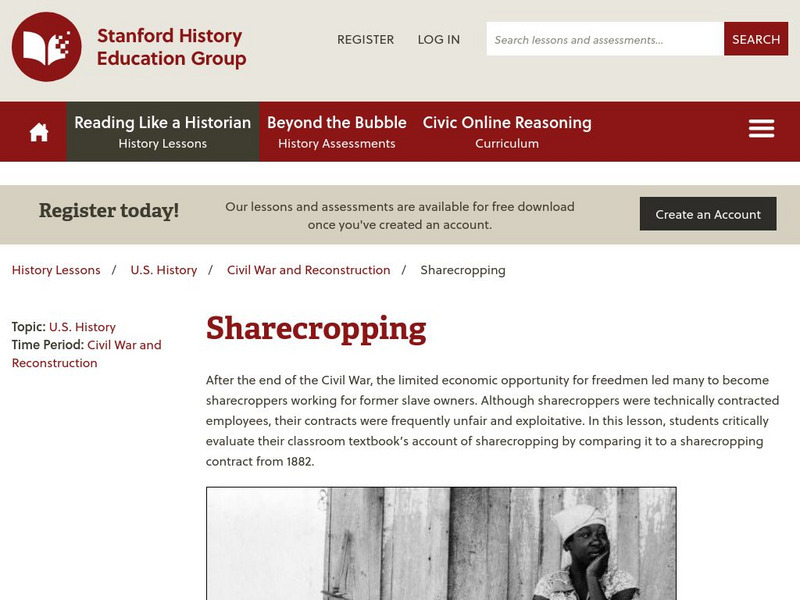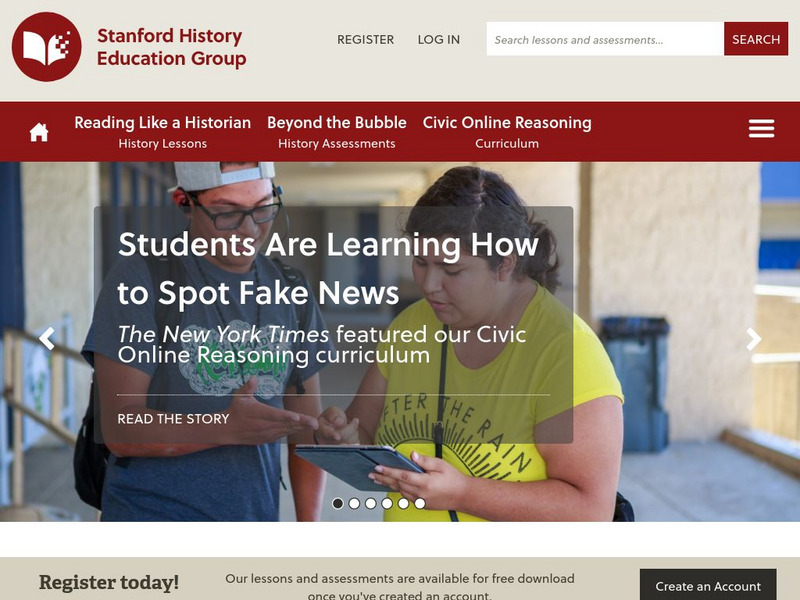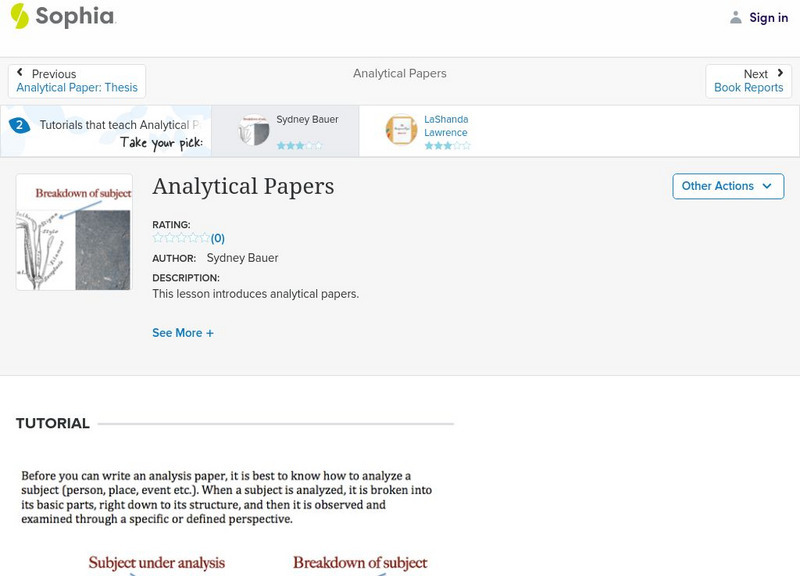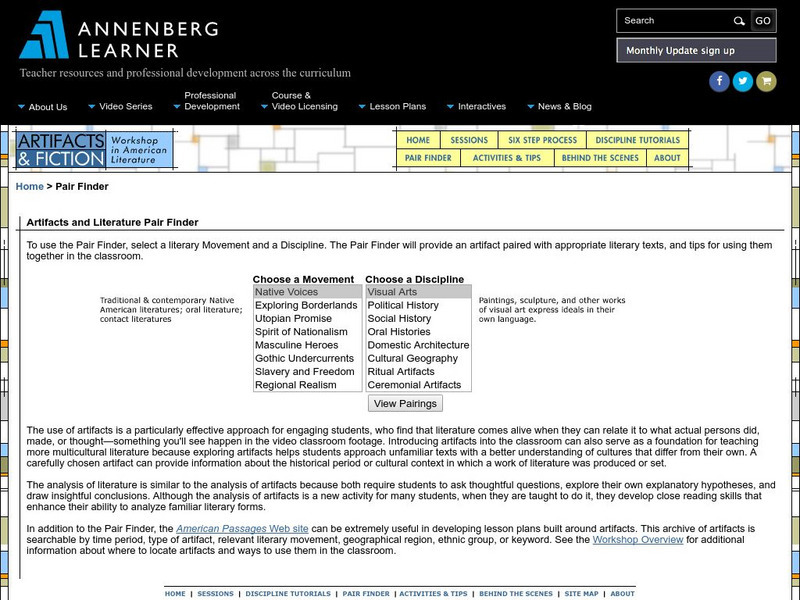Other
George W. Bush Library: What Do Historical Objects Tell Me? [Pdf]
A comprehensive lesson training learners to analyze historical objects to determine features, reliability, authenticity, and provenance through observation skills encouraged through a variety of activities.
Other
Houston Independent School District: Social Studies Strategies [Pdf]
Hone in on methods for historical thinking and the process of historical inquiry when studying social studies.
Polk Brothers Foundation Center for Urban Education at DePaul University
Depaul University: Center for Urban Education: Guide/assess Nonfiction Reading
This site contains 47 one-page guided writing and reading guides and assessments.The reproducibles are copyrighted materials but may be copied and used for educational purposes.
Annenberg Foundation
Annenberg Learner: Analyzing Artifacts
Learn the steps in the 5-step process that historians use when they analyze an artifact as you investigate what you can learn from Native American and other items.
Other
Monash University Library: Evaluating Web Pages
Use this guide to learn how to evaluate web pages. This concise guide also addresses why evaluation is important. CCSS.ELA-Literacy.CCRA.R.7
Smithsonian Institution
National Postal Museum: A Student's Guide to Historical Research
This resource focuses on teaching students how to do historical research via a series of steps. Historical photos and documents are included as examples.
CPALMS
Cpalms: Browse and Search Resources
This site shares a collection of expert and peer-vetted teacher resources that are searchable for teachers and students. Searching can be achieved via a subject, grade, audience, and/or type. Curricula standards for the following subjets...
Georgia Department of Education
Ga Virtual Learning: Nonfiction and Research: The Research Process: Notetaking
This lesson focuses on taking notes for your research project. It explains what to included in your notes and how to write them. It offers a link to The Quality Writing Center: "Creating and Using Outlines" and Study Guides and...
Georgia Department of Education
Ga Virtual Learning:technology and the World Around Us: Technology and Education
This lesson focuses on the benefits of technology in education including assisting students with their writing and research skills, reading comprehension and providing them with numerous resources on the Internet for analyzing works of...
Google
Google for Education: Finding Patterns in Spelling Errors and History
In this lesson, students analyze spelling errors and large sets of data to find patterns, develop abstractions, and discover how large amounts of data can tell us much about our society.
Other
Bowdoin: Reading, Writing, Researching for History: A Guide for College Students
Reference guide material discusses how to research, write and read for history.
US Census Bureau
U.s. Census: Population
This site is great for gathering sociological data. Data can be related to a wide variety of topics. Great for research!
Stanford University
Beyond the Bubble: History Assessments
[Free Registration/Login Required] A collection of innovative assessments, interactive rubrics, and annotated samples of student work with an emphasis on primary source documents for the use in a wide range of history concepts.
Stanford University
Sheg: Document Based History: Reading Like a Historian: Evaluating Sources
[Free Registration/Login Required] Are all historical sources equally trustworthy? How might the reliability of a historical document be affected by the circumstances under which it was created? For this activity, students sharpen their...
Stanford University
Sheg: Document Based History: Reading Like a Historian: Historical Thinking
[Free Registration/Login Required] This chart elaborates on the historical reading skills of sourcing, corroboration, contextualization, and close reading. In addition to questions that relate to each skill, the chart includes...
Stanford University
Sheg: Document Based History: Reading Like a Historian: Sharecropping
[Free Registration/Login Required] Learners solve a problem surrounding a historical question by reading primary source documents. This historical inquiry instructional activity allows students to critically evaluate their classroom...
Stanford University
Sheg: Document Based History: Reading Like a Historian:sourcing Classroom Poster
[Free Registration/Login Required] Sourcing asks students to consider who wrote a document as well as the circumstances of its creation. Who authored a given document? When? For what purpose? This poster reminds students before reading a...
Stanford University
Stanford History Education Group: Home
[Free Registration/Login Required] Working with school districts from coast to coast, and as far away as Sweden, Singapore, and Chile, the Stanford History Education Group provides teachers with high-quality resources to enrich students'...
Sophia Learning
Sophia: Analytical Papers
This lesson focuses on analytical papers; it explains how to analyze a subject and the goal of analytical papers. They must include a defined or specific perspective from which to evaluate, an evaluation, and the breakdown of the...
Sophia Learning
Sophia: Creating a Good Survey and Analyzing the Results
In this activity, students will learn how to develop a sample survey while also using inferential statistics to solve real-world problems.
Annenberg Foundation
Annenberg Learner: Artifacts & Fiction Pair Finder
Pair artifacts with appropriate literary texts, and find tips for using them together in the classroom by selecting a literary movement and a discipline with this handy tool.
Annenberg Foundation
Annenberg Learner: America's History in the Making: Historical Thinking Interactives
Six interactive activities are presented that walk students through how to use their critical thinking skills in the analysis of historical artifacts and documents. The sixth one explains how to balance the various perspectives that...
University of Maryland
University of Maryland: Langscape
This educational tool will identify the languages spoken anywhere on the map. Click on a country to discover which language or languages are native. Scroll to the bottom and find additional resources about the language/country selected.
Other
Center for Assessment: Tools for Examining Text Complexity [Pdf]
Learn how to use several tools to determine text complexity and readability of text for your students.


![George W. Bush Library: What Do Historical Objects Tell Me? [Pdf] Lesson Plan George W. Bush Library: What Do Historical Objects Tell Me? [Pdf] Lesson Plan](https://d15y2dacu3jp90.cloudfront.net/images/attachment_defaults/resource/large/FPO-knovation.png)

